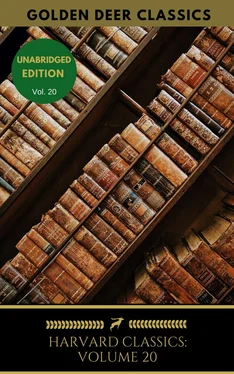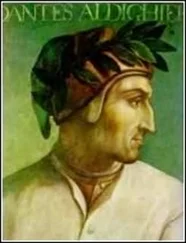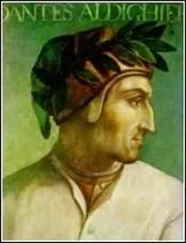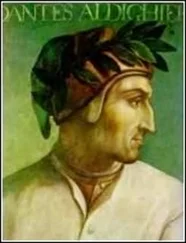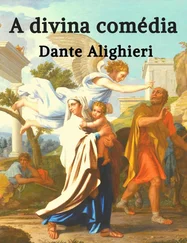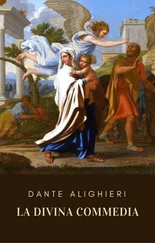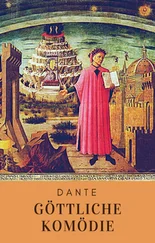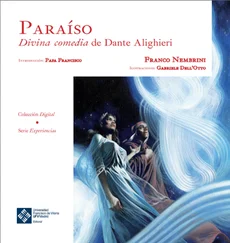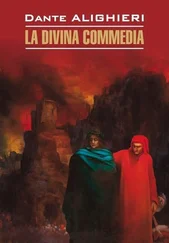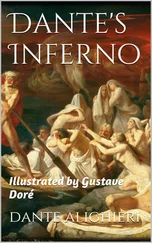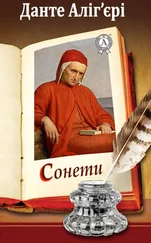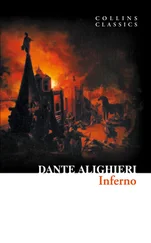Array Dante Alighieri - Harvard Classics Volume 20
Здесь есть возможность читать онлайн «Array Dante Alighieri - Harvard Classics Volume 20» — ознакомительный отрывок электронной книги совершенно бесплатно, а после прочтения отрывка купить полную версию. В некоторых случаях можно слушать аудио, скачать через торрент в формате fb2 и присутствует краткое содержание. Жанр: unrecognised, на английском языке. Описание произведения, (предисловие) а так же отзывы посетителей доступны на портале библиотеки ЛибКат.
- Название:Harvard Classics Volume 20
- Автор:
- Жанр:
- Год:неизвестен
- ISBN:нет данных
- Рейтинг книги:5 / 5. Голосов: 1
-
Избранное:Добавить в избранное
- Отзывы:
-
Ваша оценка:
- 100
- 1
- 2
- 3
- 4
- 5
Harvard Classics Volume 20: краткое содержание, описание и аннотация
Предлагаем к чтению аннотацию, описание, краткое содержание или предисловие (зависит от того, что написал сам автор книги «Harvard Classics Volume 20»). Если вы не нашли необходимую информацию о книге — напишите в комментариях, мы постараемся отыскать её.
1. The Divine Comedy, by Dante Alighieri
Also available:
The Complete Harvard Classics Collection (51 Volumes + The Harvard Classic Shelf Of Fiction)
50 Masterpieces You Have To Read Before You Die (Golden Deer Classics)
Harvard Classics Volume 20 — читать онлайн ознакомительный отрывок
Ниже представлен текст книги, разбитый по страницам. Система сохранения места последней прочитанной страницы, позволяет с удобством читать онлайн бесплатно книгу «Harvard Classics Volume 20», без необходимости каждый раз заново искать на чём Вы остановились. Поставьте закладку, и сможете в любой момент перейти на страницу, на которой закончили чтение.
Интервал:
Закладка:
Along the horizon, and the Wain [80]lies all
O’er the northwest; and onward there a space
Is our steep passage down the rocky height.”
Canto XII
Argument.—Descending by a very rugged way into the seventh circle, where the violent are punished, Dante and his leader find it guarded by the Minotaur; whose fury being pacified by Virgil, they step downward from crag to crag; till, drawing near the bottom, they descry a river of blood, wherein are tormented such as have committed violence against their neighbor. At these, when they strive to emerge from the blood, a troop of Centaurs, running along the side of the river, aim their arrows; and three of their band opposing our travellers at the foot of the steep, Virgil prevails so far that one consents to carry them both across the stream; and on their passage, Dante is informed by him of the course of the river, and of those that are punished therein.
The place, where to descend the precipice
We came, was rough as Alp; and on its verge
Such object lay, as every eye would shun.
As is that ruin, which Adice’s stream [81]
On this side Trento struck, shouldering the wave,
Or loosed by earthquake or for lack of prop;
For from the mountain’s summit, whence it moved
To the low level, so the headlong rock
Is shiver’d, that some passage it might give
To him who from above would pass; e’en such
Into the chasm was that descent: and there
At point of the disparted ridge lay stretch’d
The infamy of Crete, [82]detested brood
Of the feign’d heifer: [83]and at sight of us
It gnaw’d itself, as one with rage distract.
To him my guide exclaim’d: “Perchance thou deem’st
The King of Athens [84]here, who, in the world
Above, thy death contrived. Monster! avaunt!
He comes not tutor’d by thy sister’s art, [85]
But to behold your torments is he come.”
Like to a bull, that with impetuous spring
Darts, at the moment when the fatal blow
Hath struck him, but unable to proceed
Plunges on either side; so saw I plunge
The Minotaur; whereat the sage exclaim’d:
“Run to the passage! while he storms, ’tis well
That thou descend.” Thus down our road we took
Through those dilapidated crags, that oft
Moved underneath my feet, to weight like theirs
Unused. I pondering went, and thus he spake:
“Perhaps thy thoughts are of this ruin’d steep,
Guarded by the brute violence, which I
Have vanguish’d now. Know then, that when I erst
Hither descended to the nether Hell,
This rock was not yet fallen. But past doubt,
(If well I mark) not long ere He arrived, [86]
Who carried off from Dis the mighty spoil
Of the highest circle, then through all its bounds
Such trembling seized the deep concave and foul,
I thought the universe was thrill’d with love,
Whereby, there are who deem, the world hath oft
Been into chaos turn’d: and in that point,
Here, and elsewhere, that old rock toppled down.
But fix thine eyes beneath: the river of blood
Approaches, in the which all those are steep’d,
Who have by violence injured.” O blind lust!
O foolish wrath! who so dost goad us on
In the brief like, and in the eternal then
Thus miserably o’erwhelm us. I beheld
An ample foss, that in a bow was bent,
As circling all the plain; for so my guide
Had told. Between it and the rampart’s base,
On trail ran Centaurs, with keen arrows arm’d,
As to the chase they on the earth were wont.
At seeing us descend they each one stood;
And issuing from the troop, three sped with bows
And missile weapons chosen first; of whom
One cried from far: “Say, to what pain ye come
Condemn’d, who down this steep have journey’d. Speak
From whence ye stand, or else the bow I draw.”
To whom my guide: “Our answer shall be made
To Chiron, there, when nearer him we come.
Ill was thy mind, thus ever quick and rash.”
Then me he touch’d and spake: “Nessus is this,
Who for the fair Deïanira died,
And wrought himself revenge [87]or his own fate.
He in the midst, that on his breast looks down,
Is the great Chiron who Achilles nursed;
That other, Pholus, prone to wrath.” Around
The foss these go by thousands, aiming shafts
At whatsoever spirit dares emerge
From out the blood, more than his guilt allows.
We to those beasts, that rapid strode along,
Drew near; when Chiron took an arrow forth,
And with the notch push’d back his shaggy beard
To the cheek-bone, then, his great mouth to view
Exposing, to his fellows thus exclaim’d:
“Are ye aware, that he who comes behind
Moves what he touches? The feet of the dead
Are not so wont.” My trusty guide, who now
Stood near his breast, where the two natures join,
Thus made reply: “He is indeed alive,
And solitary so must needs by me
Be shown the gloomy vale, thereto induced
By strict necessity, not by delight.
She left her joyful harpings in the sky,
Who this new office to my care consign’d.
He is no robber, no dark spirit I.
But by that virtue, which empowers my step
To tread so wild a path, grant us, I pray,
One of thy band, whom we may trust secure,
Who to the ford may lead us, and convey
Across, him mounted on his back; for he
Is not a spirit that may walk the air.”
Then on his right breast turning, Chiron thus
To Nessus spake: “Return, and be their guide.
And if ye chance to cross another troop,
Command them keep aloof.” Onward we moved,
The faithful escort by our side, along
The border of the crimson-seething flood,
Whence, from those steep’d within, loud shrieks arose.
Some there I mark’d, as high as to their brow
Immersed, of whom the mighty Centaur thus:
“These are the souls of tyrants, who were given
To blood and rapine. Here they wail aloud
Their merciless wrongs. Here Alexander dwells,
And Dionysius fell, who many a year
Of woe wrought for fair Sicily. That brow,
Whereon the hair so jetty clustering hangs,
Is Azzolino; [88]that with flaxen locks
Obizzo [89]of Este, in the world destroy’d
By his foul step-son.” To the bard revered
I turn’d me round, and thus he spake: “Let him
Be to thee now first leader, me but next
To him in rank.” Then further on a space
The Centaur paused, near some, who at the throat
Were extant from the wave; and, showing us
A spirit by itself apart retired,
Exclaim’d: “He [90]in God’s bosom smote the heart,
Which yet is honored on the bank of Thames.”
A race I next espied who held the head,
And even all the bust, above the stream.
’Midst these I many a face remember’d well.
Thus shallow more and more the blood became,
So that at last it but imbrued the feet;
And there our passage lay athwart the foss.
“As ever on this side the boiling wave
Thou seest diminishing,” the Centaur said,
“So on the other, be thou well assured,
It lower still and lower sinks its bed,
Till in that part it reuniting join,
Where ’tis the lot of tyranny to mourn.
There Heaven’s stern justice lays chastising hand
On Attila, who was the scourge of earth,
On Sextus and on Pyrrhus, [91]and extracts
Tears ever by the seething flood unlock’d
From the Rinieri, of Corneto this,
Pazzo the other named, [92]who fill’d the ways
With violence and war.” This said, he turn’d,
Читать дальшеИнтервал:
Закладка:
Похожие книги на «Harvard Classics Volume 20»
Представляем Вашему вниманию похожие книги на «Harvard Classics Volume 20» списком для выбора. Мы отобрали схожую по названию и смыслу литературу в надежде предоставить читателям больше вариантов отыскать новые, интересные, ещё непрочитанные произведения.
Обсуждение, отзывы о книге «Harvard Classics Volume 20» и просто собственные мнения читателей. Оставьте ваши комментарии, напишите, что Вы думаете о произведении, его смысле или главных героях. Укажите что конкретно понравилось, а что нет, и почему Вы так считаете.
